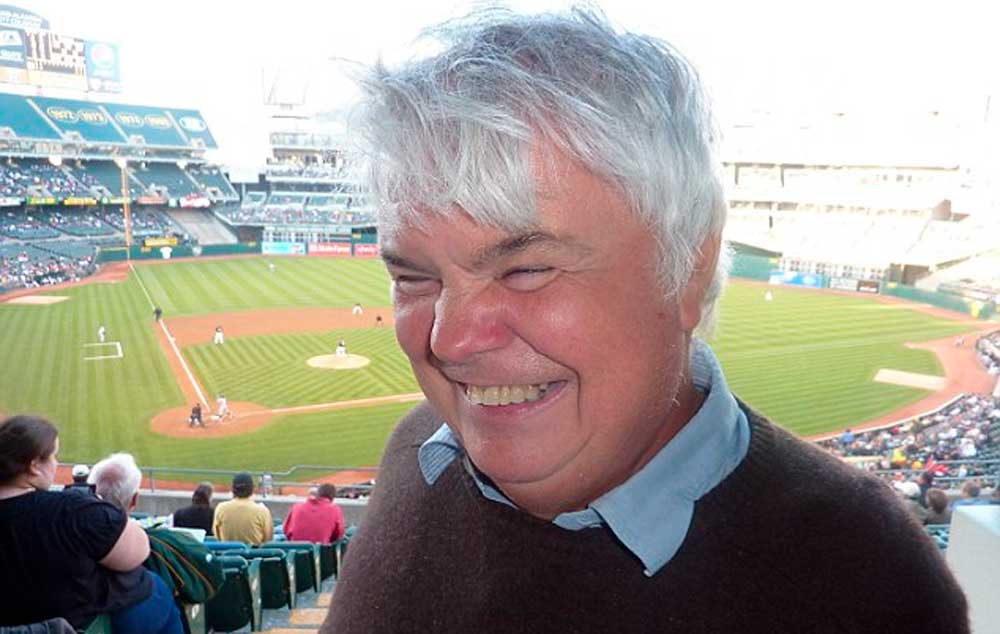
Travel for the blind: One man’s journeys around the world on a sight-unseen basis
I think it was at Berkeley Castle in Gloucestershire that I first realised ‘sightseeing’ was not for me. We had been trailing around the old ruin for about an hour, shuffling listlessly from room to room, dazed with boredom as one pointless detail about what had happened in them was piled upon another. I was 12, it was a bank holiday and the sun was shining gloriously outside as we, a group of totally blind children, were given our ‘treat’.
What made it even worse was that we knew that, in fact, something really interesting had happened at Berkeley Castle because, as every schoolboy knows, Edward II met a very nasty end there. Now, if they wanted to make it really interesting to blind schoolchildren, where was the red-hot poker? Were there any recordings of the screams (perhaps even I knew enough history to realise that was not likely in 1327), or, at the very least, a few fragments of singed flesh?
The fact is, sightseeing and I were never going to see eye to eye. The tragedy is that over the years, people have tried so hard to make it work. Specially recorded tapes for blind people, rails to follow so that you can go round unaided, a huge revolution in what you’re allowed to touch. In the desperate attempts of people to make me interested in ‘sightseeing’, I’ve clambered over Henry Moore sculptures, climbed the rigging in ships which felt as if they’d split asunder if I took another step, and listened to endless recordings of groaning doors and booming cannons in the attempt to make history come to life for me.
The plain fact is, though, that however good the intentions, touch is not sight – and once you’ve run your hands over one piece of ancient stone, one stuccoed wall, one marble floor, well, you’ve touched them all.
The problem with touch really is that the hand is too small. You can only touch one little bit at a time. There’s too much missing; a sense of size, colour, perspective, visual contrast. With the best will in the world, you are playing at being able to see, and for me, that kind of self-deception has never cut any ice.
This, nevertheless, does not mean that travelling, visiting and poking about in other people’s cultures cannot be enormous fun for a blind person. It’s just that I think you have to be honest about what is fun, and what isn’t.
It was a wish to try to explain and share what it was that could make travelling come alive for a totally blind person, unable to see from birth, that gave rise to a series I’m doing for the BBC World Service. The concept of Blind Man Roams The Globe is simple enough. The listener only gets to hear what I hear! But, you might reasonably argue, this is radio. That’s all they’d hear if the reporter was sighted. Not so!
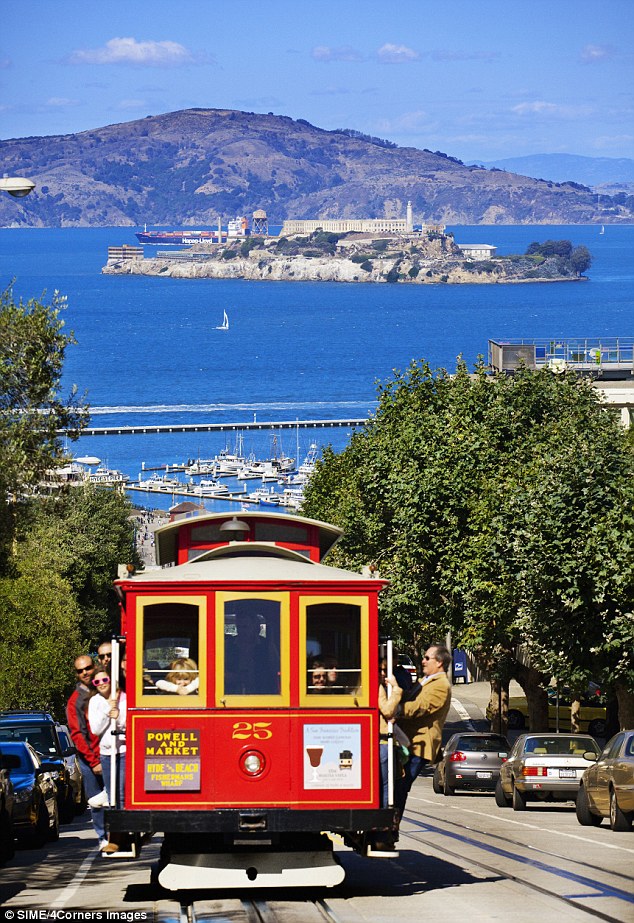 Most foreign reportage is someone telling you what they can see: the views, the landscape, the artefacts, the paintings. What I’ve tried to do is let you hear exactly what I hear, as the city introduces itself by sound. When I land at an airport, or a harbour, or cross a border, my ears are instantly tuned to the individual sound of the place – its voices, of course, but also the rise and fall of its music, its street sounds, calls to trade, calls to prayer and just the sounds of a city at work, at play, joshing, arguing, fighting.
Most foreign reportage is someone telling you what they can see: the views, the landscape, the artefacts, the paintings. What I’ve tried to do is let you hear exactly what I hear, as the city introduces itself by sound. When I land at an airport, or a harbour, or cross a border, my ears are instantly tuned to the individual sound of the place – its voices, of course, but also the rise and fall of its music, its street sounds, calls to trade, calls to prayer and just the sounds of a city at work, at play, joshing, arguing, fighting.
Most airports have a depressing sameness. But once you get outside, the individuality of a city’s transport system is reflected in its sounds. I love public transport; taxis would be easier, of course, but quite apart from the cost, public transport is where you meet people and where you really get ‘the feel’ of the place.
The first city I’ve given this treatment to is San Francisco, where the prevailing transport sound is the wonderful clanging bells of their trams. Sadly, though, this is rather misleading. The trams, in service since the Thirties, are now primarily tourist attractions. For me, San Francisco’s transport glory is its more conventional bus service. Always busy, theses vehicles are crowded with the city’s bewildering racial mix, and to ride them is to get an instant impression of the city’s ethnic geography.
As you travel through the districts – Hispanic, Chinese, Japanese, Italian – the voices change as the bus empties and fills, empties and fills. But the buses are far more than a geography lesson for my benefit. Unlike Britain’s rather stolid equivalents, full of people with their heads down or buried in a newspaper, these reflect the city. They are debating chambers, dating agencies, information centres; there is even the odd singsong.
The driver of my very first San Francisco bus – third-generation Irish – broke into The Boys Are Back In Town before we’d gone half a mile. I acknowledge an advantage here. If you allow it, being blind opens up the possibility of conversation. I frequently need help. That forces me to seek people out.
My need for assistance gives a kind of permission for other intimacies. If you want to get to know a place and its people, that’s the way to do it. This enabled me, without appearing excessively curious, to fall into conversation with some of the homeless people encamped at Oakland railway station; to join a very animated conversation between a couple of gay friends sitting on their porch; to learn about the latest concerns of their community – the possible resurgence of AIDS as complacency sets in among the young; their love of the city that allows them to be themselves; and the weird obsession of San Franciscans with their dogs, an obsession that makes British dog-loving positively anaemic.
Going to sports events is another way in which a combination of my need for help and my transparent enthusiasm for sport allows me to be invited into the usually closed world of home supporters. Again I had to go to the nearby town of Oakland for my baseball experience – the San Francisco Giants weren’t at home. The baseball I witnessed seemed much more of a family game than British soccer and rather more gentle.
I met three generations of one family there: granny, son and daughter-in-law, and the kids. They were mildly interested in the game, but rather more interested in a huge hamper of food they had with them, which they were only too happy to share with me, along with a confusing account of the rules, and the reasons why a kind of impromptu dog show between innings seemed to be getting more attention than the game itself.
I was similarly welcomed in Istanbul, the second city on my list, when I fetched up at a home fixture of Galatasaray, one of the capital’s many top teams. For me it was like stepping back in time to pre-Hillsborough English football – walking into the stadium over a bed of crushed paper cups and burger-boxes and then, having bought the cheapest ticket available at the latest possible moment, climbing on to the packed terraces, heaving and swaying with the regulars.
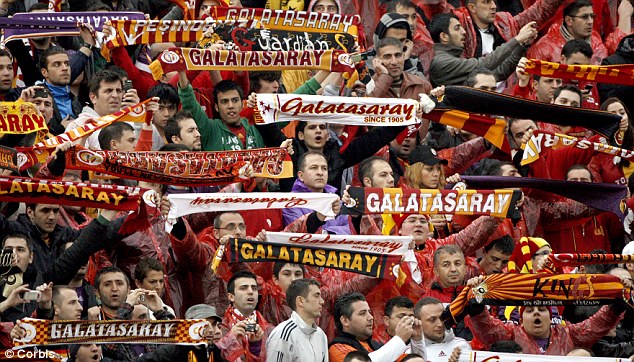 For me it was irrelevant, but I doubt whether all of them could see what was going on, so packed was it. But no one seemed to care and very soon, with the blind passport of a white cane, I was sharing their beers, being told why their manager should go, who was lazy, who was wonderful, and why the opposition were no better than dogs and vermin. A good couple of hours was spent by all – oh, and we won. Yes, it was certainly ‘we’ by the end.
For me it was irrelevant, but I doubt whether all of them could see what was going on, so packed was it. But no one seemed to care and very soon, with the blind passport of a white cane, I was sharing their beers, being told why their manager should go, who was lazy, who was wonderful, and why the opposition were no better than dogs and vermin. A good couple of hours was spent by all – oh, and we won. Yes, it was certainly ‘we’ by the end.
Self-preservation breeds early loyalty. And here lies, I think, the nub of the success of this kind of travelling. You have to wear your vulnerability with pride, never be afraid to ask. Don’t judge and you’ll be welcomed wherever you go!
Peter White presents Blind Man Roams The Globe at 8pm on January 12 on the BBC World Service.
Source: Mail Online
Compartilhe
Use os ícones flutuantes na borda lateral esquerda desta página
Siga-nos!
Envolva-se em nosso conteúdo, seus comentários são bem-vindos!
Artigos relacionados
Teleton AACD. A pessoa com deficiência como protagonista.
Teleton AACD. A pessoa com deficiência como protagonista. Uma iniciativa internacional abraçada pelo SBT no Brasil.
Acessibilidade no ESG. Equipotel aborda o tema para o turismo.
Acessibilidade no ESG, para o mercado do turismo. Equipotel aborda a importância da inclusão da pessoa com deficiência.
Morte Sobre Rodas. Filme inclusivo foi candidato ao Oscar.
Morte Sobre Rodas. Dois protagonistas do filme, são pessoas com deficiência, um usuário de cadeira de rodas e outro com paralisia cerebral.



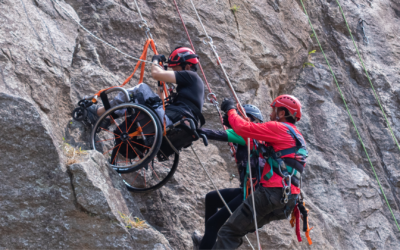
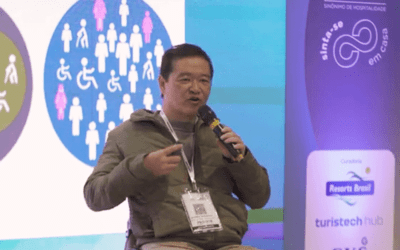
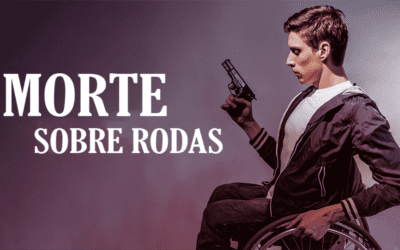
0 comentários